
Sani Pass: South Africa's Gateway to Lesotho
Sani Pass is a majestic mountain pass that connects South Africa to the landlocked country of Lesotho. Located in the Drakensberg Mountains, this pass is renowned for its breathtaking scenery and challenging terrain. Often referred to as the 'Roof of Africa,' Sani Pass offers tourists an unforgettable adventure filled with stunning landscapes and unique cultural experiences. The journey up Sani Pass is an exciting one, requiring a 4x4 vehicle to navigate the steep, winding roads. As you ascend, you'll be treated to panoramic views of the surrounding valleys and peaks. The higher you go, the more the landscape changes, from lush greenery to rocky outcrops and eventually to the snowy peaks of Lesotho in the winter months. At the summit of Sani Pass, you will find the Sani Mountain Lodge, home to the highest pub in Africa. Here, you can enjoy a warm meal and a cold drink while taking in the awe-inspiring views. Just a short distance away, you can visit traditional Basotho villages, where you can learn about the local culture and way of life. Whether you're an adventure seeker or a nature lover, Sani Pass offers something for everyone.
Local tips in Sani Pass
- Ensure your vehicle is a 4x4, as the road conditions are rough and require a high-clearance vehicle.
- Check weather conditions before your trip; the pass can be treacherous in bad weather, especially during winter.
- Bring warm clothing, as temperatures can drop significantly at higher altitudes, even in the summer.
- Carry your passport, as you will need to pass through border control between South Africa and Lesotho.
- Visit the Sani Mountain Lodge for a meal or drink and enjoy the highest pub in Africa.
- Consider hiring a local guide to enhance your experience and ensure safety on the challenging terrain.
- Take your time to explore the Basotho villages at the top of the pass for a glimpse into local culture and traditions.
Sani Pass: South Africa's Gateway to Lesotho
Sani Pass is a majestic mountain pass that connects South Africa to the landlocked country of Lesotho. Located in the Drakensberg Mountains, this pass is renowned for its breathtaking scenery and challenging terrain. Often referred to as the 'Roof of Africa,' Sani Pass offers tourists an unforgettable adventure filled with stunning landscapes and unique cultural experiences. The journey up Sani Pass is an exciting one, requiring a 4x4 vehicle to navigate the steep, winding roads. As you ascend, you'll be treated to panoramic views of the surrounding valleys and peaks. The higher you go, the more the landscape changes, from lush greenery to rocky outcrops and eventually to the snowy peaks of Lesotho in the winter months. At the summit of Sani Pass, you will find the Sani Mountain Lodge, home to the highest pub in Africa. Here, you can enjoy a warm meal and a cold drink while taking in the awe-inspiring views. Just a short distance away, you can visit traditional Basotho villages, where you can learn about the local culture and way of life. Whether you're an adventure seeker or a nature lover, Sani Pass offers something for everyone.
When is the best time to go to Sani Pass?
Iconic landmarks you can’t miss
Maloti-Drakensberg Park
Discover the breathtaking beauty and rich biodiversity of Maloti-Drakensberg Park, a must-visit national park in South Africa.
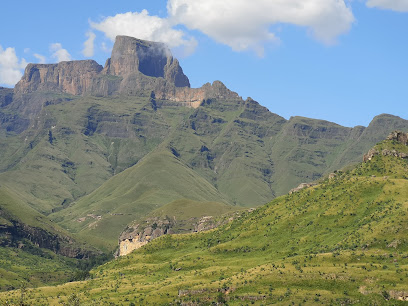
Premier Resort Sani Pass
Discover tranquility and adventure at Premier Resort Sani Pass, a stunning hotel nestled in the heart of KwaZulu-Natal's breathtaking landscapes.
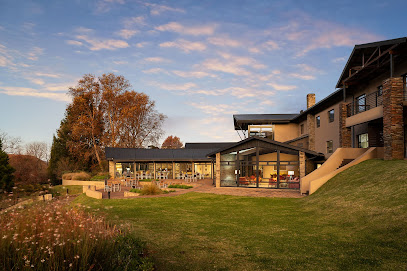
Sani Mountain Lodge
Discover the breathtaking beauty of Sani Mountain Lodge, a perfect blend of self-catering comfort and adventure in the heart of Lesotho's Drakensberg mountains.
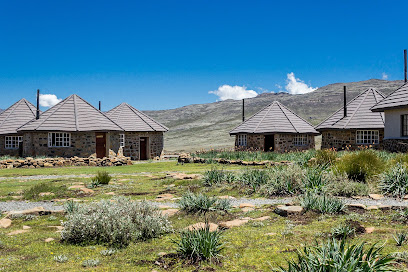
Sani Lodge Backpackers
Experience the breathtaking beauty of the Southern Drakensberg at Sani Lodge Backpackers, your eco-friendly hub for adventure and relaxation.
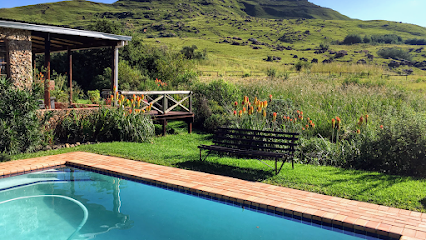
Khotso Lodge & Horse Trails
Discover adventure and serenity at Khotso Lodge & Horse Trails in the breathtaking Drakensberg mountains, offering horseback riding, hiking, and cozy accommodations.
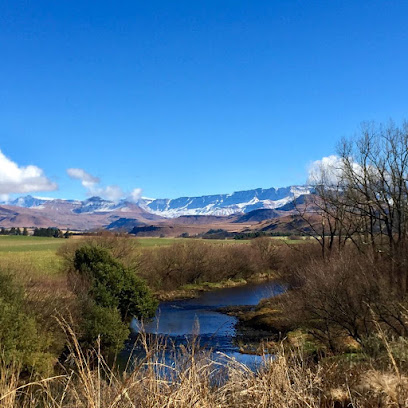
Kenmo Lake
Discover the tranquil beauty and outdoor adventures at Kenmo Lake in Underberg, a top tourist attraction in South Africa's Drakensberg region.
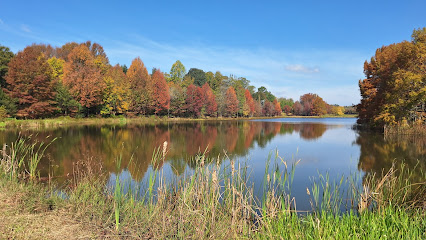
Roof of Africa Tours | Sani Pass & Lesotho Tours
Explore the breathtaking Sani Pass and the enchanting landscapes of Lesotho with Roof of Africa Tours, the ultimate adventure in Southern Africa.
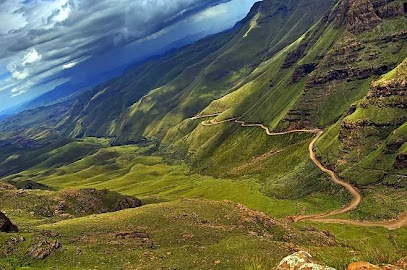
Sani Pass Tours - Lesotho Day Trips & Tours
Explore the breathtaking landscapes and rich culture of Lesotho with Sani Pass Tours, your gateway to adventure in South Africa's stunning mountain region.
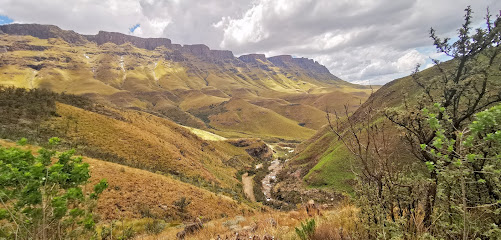
Major Adventures - Sani Pass Day Trips
Experience the breathtaking beauty of Sani Pass with Major Adventures, your gateway to South Africa's stunning Drakensberg Mountains.
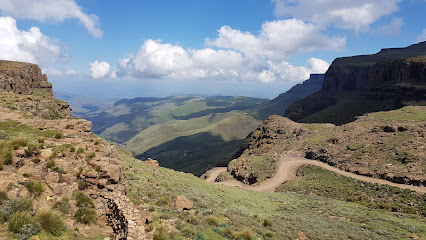
Sani Valley Nature Lodges
Experience the serene beauty of Sani Valley Nature Lodges, a perfect getaway for nature lovers and adventure seekers in South Africa.
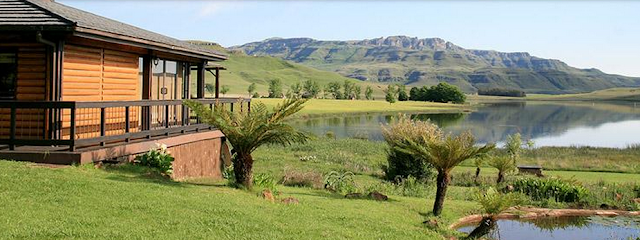
iKhayalamafu Mountain Reserve
Experience the breathtaking landscapes and diverse wildlife at iKhayalamafu Mountain Reserve, a paradise for nature lovers and adventure seekers.
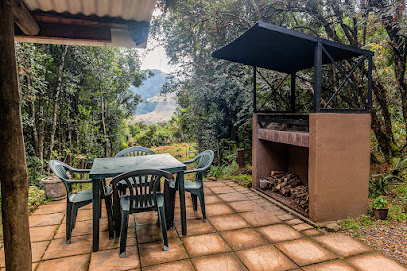
Sani Pass Border Control (Lesotho)
Explore the stunning landscapes and vibrant culture at Sani Pass Border Control, your gateway to Lesotho's majestic mountains.
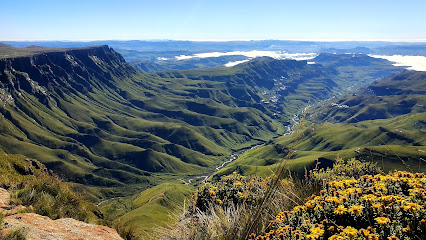
Mkomazana Mountain Cottages
Experience the serene beauty of the Drakensberg at Mkomazana Mountain Cottages, your ideal self-catering getaway for nature and adventure.
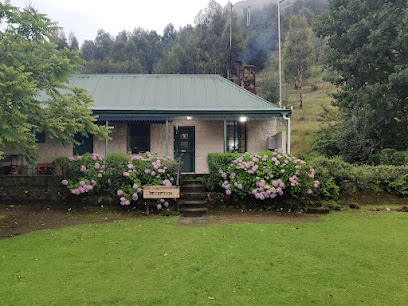
Giant's Cup Wilderness Reserve
Discover tranquility and adventure at Giant's Cup Wilderness Reserve, where stunning landscapes and exceptional fishing create an unforgettable escape in the Drakensberg Mountains.
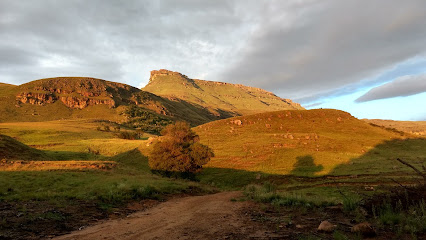
Giant's Castle
Discover the breathtaking beauty of Giant's Castle, a stunning mountain peak in South Africa ideal for hiking, nature walks, and wildlife observation.
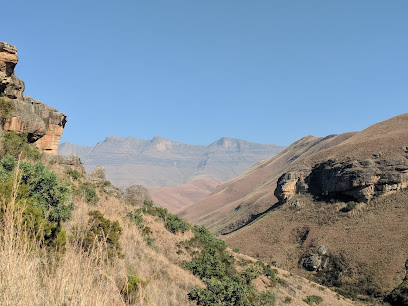
Unmissable attractions to see
Gooderson Drakensberg Gardens Golf & Spa Resort
Discover luxury and adventure at Gooderson Drakensberg Gardens Golf & Spa Resort, nestled in the stunning Drakensberg Mountains of South Africa.
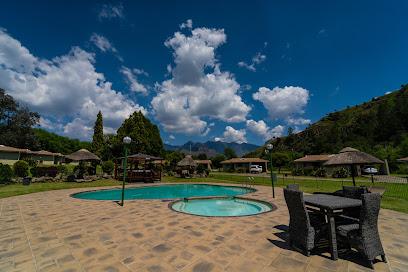
Falcon Ridge - Bird Of Prey Center
Explore the breathtaking Falcon Ridge - Bird of Prey Center in Cathkin Park, where nature's majestic raptors take center stage in unforgettable displays.
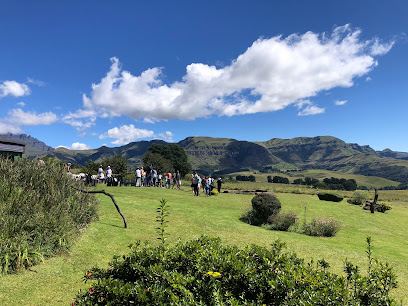
Maloti-Drakensberg Park
Discover the breathtaking landscapes and rich cultural heritage of Maloti-Drakensberg Park, a UNESCO World Heritage site in South Africa.
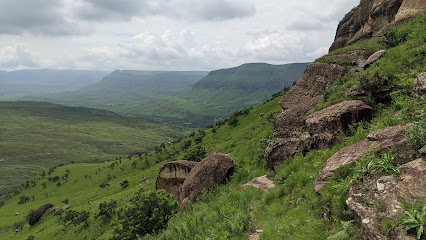
Tugela Falls
Experience the breathtaking beauty of Tugela Falls, the second highest waterfall in the world, nestled in the stunning Royal Natal National Park.
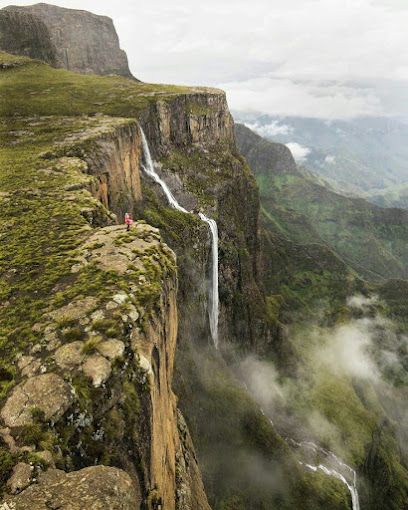
Khotso Lodge & Horse Trails
Discover adventure and serenity at Khotso Lodge & Horse Trails, your gateway to the breathtaking Drakensberg Mountains.
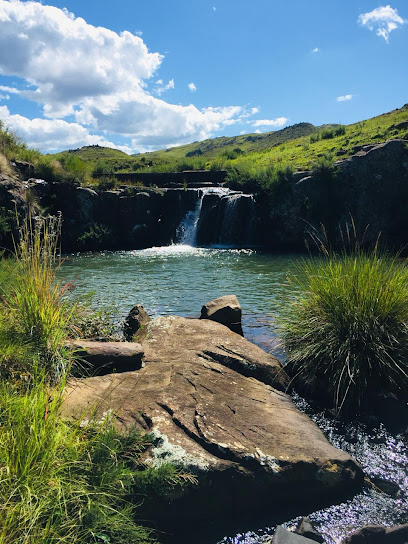
Kenmo Lake
Discover the tranquility of Kenmo Lake in Underberg, a stunning natural retreat perfect for relaxation, adventure, and unforgettable outdoor experiences.
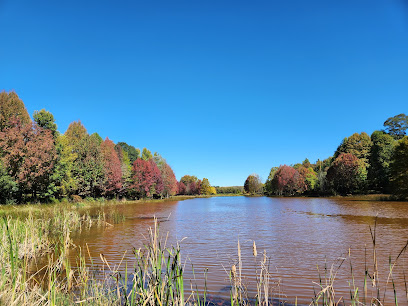
Hippo Pools
Explore the breathtaking Hippo Pools in Underberg, a nature preserve that offers stunning views and a chance to see wildlife in their natural habitat.
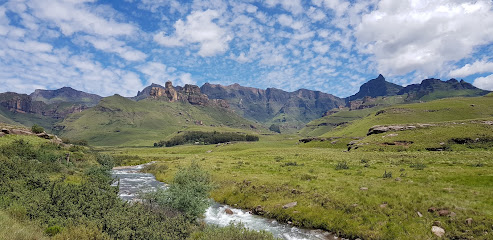
Sani Pass Tours - Lesotho Day Trips & Tours
Discover adventure and breathtaking landscapes with Sani Pass Tours in Underberg, South Africa's gateway to Lesotho's majestic mountains.
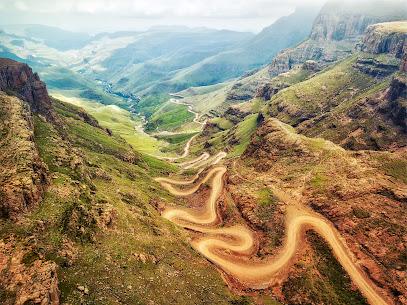
Roof of Africa Tours | Sani Pass & Lesotho Tours
Discover the beauty and culture of Lesotho with Roof of Africa Tours, exploring breathtaking landscapes and rich traditions in Sani Pass.
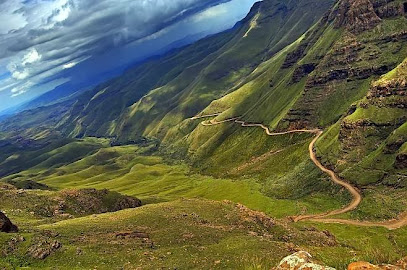
Major Adventures - Sani Pass Day Trips
Explore the breathtaking Sani Pass with Major Adventures, where adventure meets stunning landscapes in Underberg, South Africa.
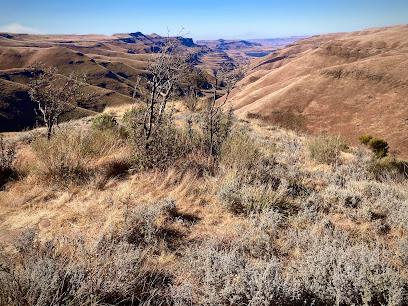
Aasvoelkrans Cave
Experience the breathtaking beauty of Aasvoelkrans Cave in Highmoor, a stunning tourist attraction filled with unique rock formations and serene landscapes.
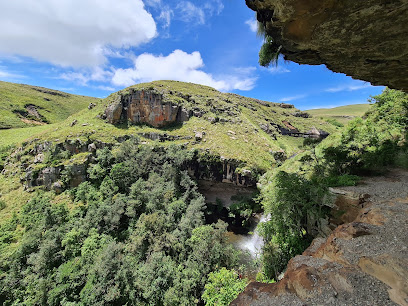
Mkhomazana Waterfall, Sani Pass Hotel
Experience the breathtaking beauty of Mkhomazana Waterfall in Sani Pass, a serene escape into nature's wonders in South Africa's stunning highlands.
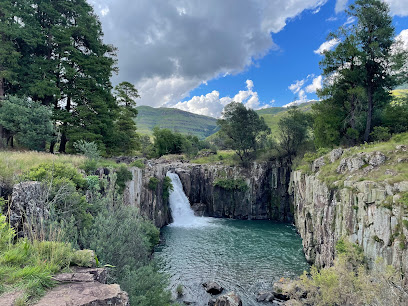
Sani Tops Backpackers Campsite
Unwind at Sani Tops Backpackers Campsite, a serene escape in Lesotho's breathtaking highlands, perfect for nature lovers and adventure seekers.
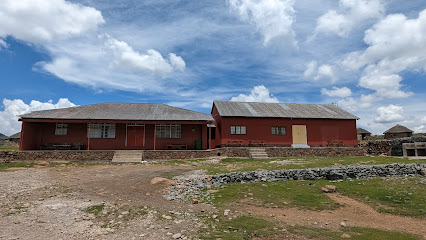
Sehlabathebe National Park
Discover the breathtaking landscapes and rich biodiversity of Sehlabathebe National Park in Lesotho, a paradise for nature lovers and adventurers.
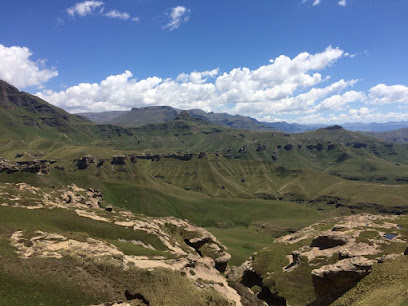
Sleeping Beauty Cave
Explore the breathtaking beauty of Sleeping Beauty Cave, a hiker's paradise in South Africa known for its stunning formations and serene trails.
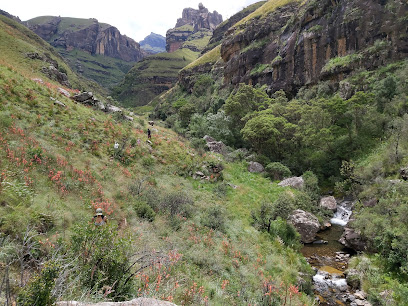
Essential places to dine
aha Alpine Heath Resort
Discover breathtaking landscapes and luxurious accommodations at aha Alpine Heath Resort in Northern Drakensberg.
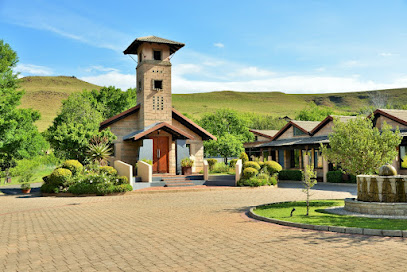
Bushmans Nek Berg and Trout Resort
Experience ultimate relaxation and adventure at Bushmans Nek Berg and Trout Resort, where stunning landscapes meet exceptional hospitality.
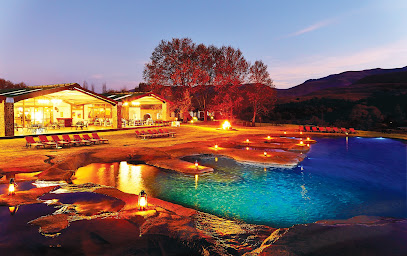
Castleburn Resort
Experience unparalleled relaxation at Castleburn Resort in South Africa's breathtaking Drakensberg Mountains.

Thokozisa Restaurant
Experience authentic South African cuisine at Thokozisa Restaurant in Cathkin Park with breathtaking views and warm hospitality.
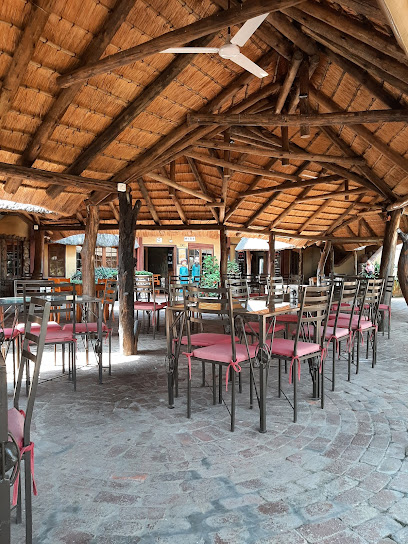
Premier Resort Sani Pass
Experience luxury amidst breathtaking mountain landscapes at Premier Resort Sani Pass - your gateway to adventure in KwaZulu-Natal.
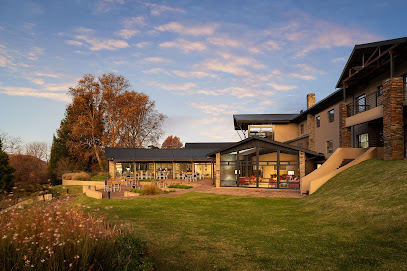
Champagne Castle Hotel
Discover serenity at Champagne Castle Hotel amidst breathtaking mountain views and luxurious accommodations in Central Drakensberg.
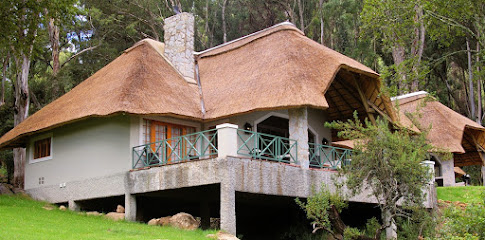
The Coffee Patch
Experience the warmth of South African hospitality at The Coffee Patch in Bergville – where exceptional coffee meets delicious local cuisine.
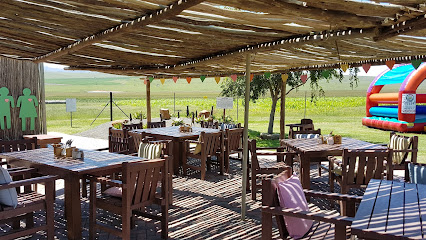
The Lemon Tree Farm Shop & Bistro
Discover culinary delights at The Lemon Tree Farm Shop & Bistro in Underberg – where fresh ingredients meet cozy ambiance.
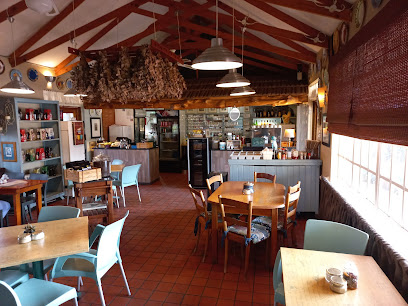
The Olde Duck
Discover exquisite local cuisine amidst the breathtaking beauty of the Drakensberg at The Olde Duck Restaurant.
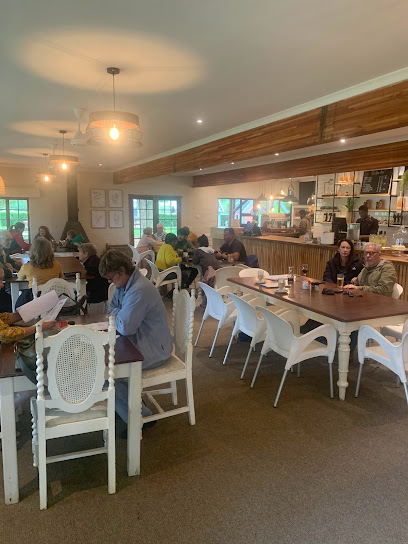
The Pig and Plough
Discover authentic South African cuisine at The Pig and Plough - where fresh ingredients meet heartfelt hospitality.
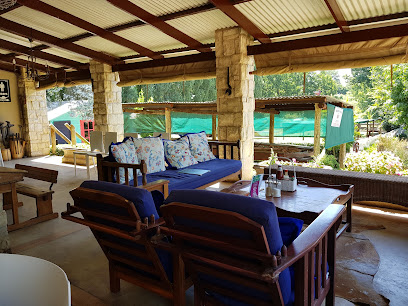
Scrumpy Jacks Restaurant
Discover the flavors of South Africa at Scrumpy Jacks Restaurant in Central Drakensberg – where culinary delight meets stunning mountain views.
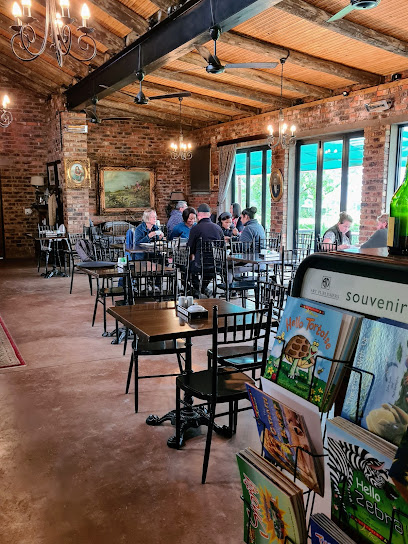
Sani Mountain Lodge
Discover breathtaking views and warm hospitality at Sani Mountain Lodge in Lesotho's stunning Sani Pass region.
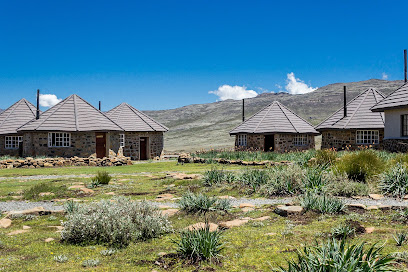
Lake Naverone Self Catering Cottages
Experience tranquility at Lake Naverone Self Catering Cottages surrounded by breathtaking Drakensberg landscapes - a perfect getaway for nature enthusiasts.
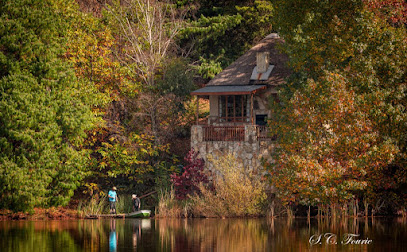
Sani Lodge Backpackers
Discover adventure at Sani Lodge Backpackers in Southern Drakensberg – your starting point for hiking, cycling & exploring breathtaking landscapes.
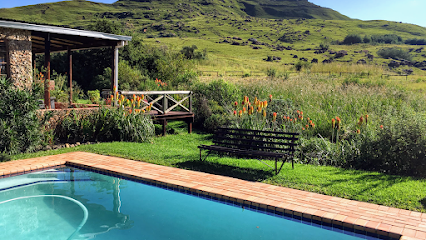
The Old Hatchery & Waterfall Restaurant
Experience exquisite dining amidst stunning landscapes at The Old Hatchery & Waterfall Restaurant in South Africa's Drakensberg region.
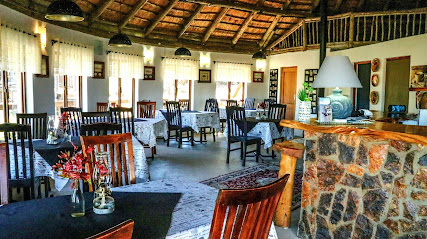
Markets, malls and hidden boutiques
Sani Pass
Discover the breathtaking Sani Pass, a stunning mountain pass in South Africa, renowned for its scenic views and cultural experiences.
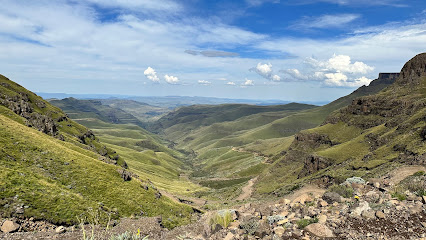
Elands Rest Convenience Store
Discover Elands Rest Convenience Store, a charming grocery spot in the Drakensberg, offering local goods amid stunning mountain views.
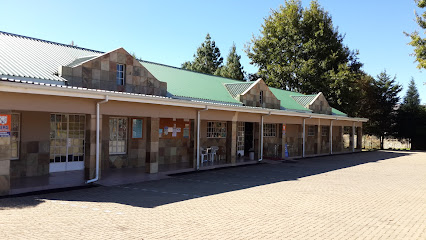
PEP Underberg
Discover affordable fashion for the whole family at PEP Underberg, where style meets affordability in the scenic Underberg region.

Heritage Plants Underberg
Discover the tranquil beauty of Heritage Plants Underberg, a paradise for plant lovers nestled in the stunning Drakensberg region.
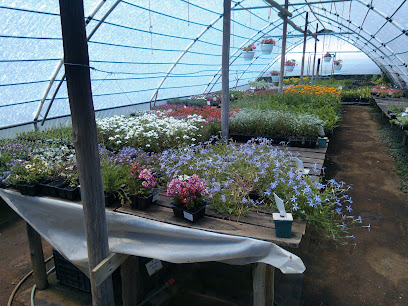
Sandra se Winkel
Discover the rich heritage and unique treasures at Sandra se Winkel, an antique store and museum in the heart of Cathkin Valley.
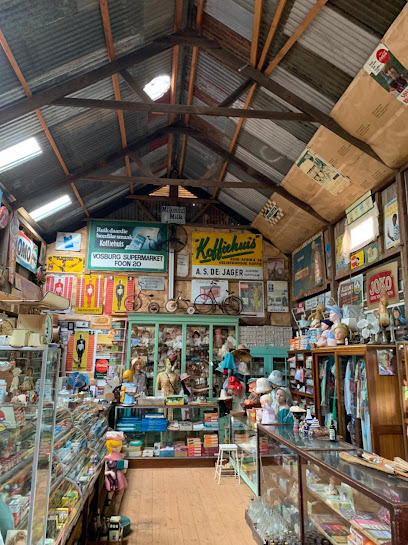
Kwazulu Weavers& Candles
Explore unique handcrafted gifts and locally made candles at Kwazulu Weavers & Candles in Winterton, a must-visit for authentic South African souvenirs.
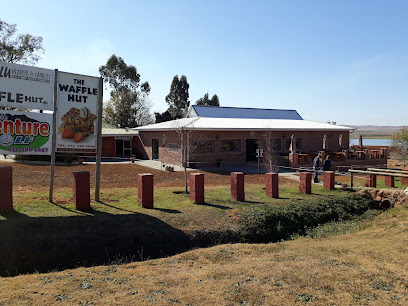
Sani Curio & Craft Shop
Explore Sani Curio & Craft Shop in Underberg for unique African crafts and souvenirs that celebrate local culture and artistry.
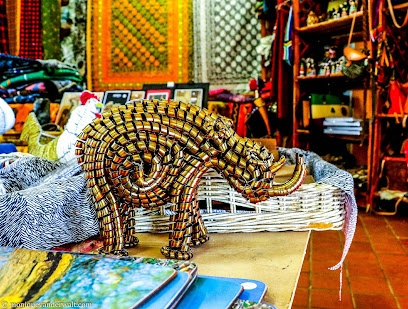
SENQU Underberg
Discover authentic South African fashion at SENQU Underberg, a charming clothing store in the scenic Drakensberg mountains.
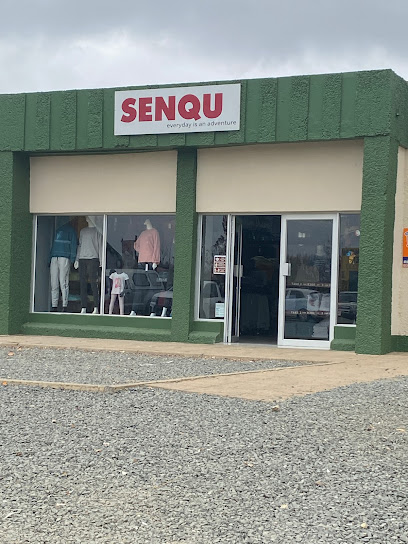
Vanilla Rose accents
Discover unique gifts and local treasures at Vanilla Rose Accents in Underberg, the perfect stop for tourists seeking memorable souvenirs.
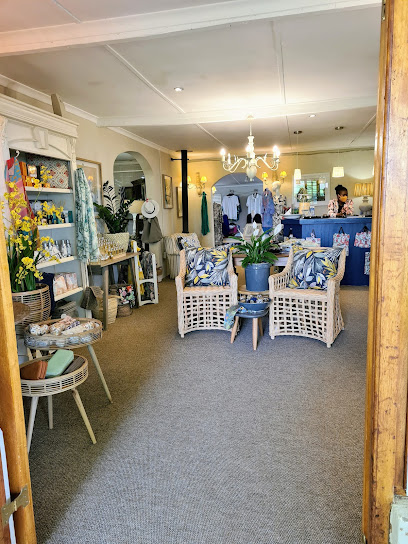
The Local Collection
Explore The Local Collection in Underberg for unique crafts, decor, and furniture that reflect the vibrant local culture and artistry.
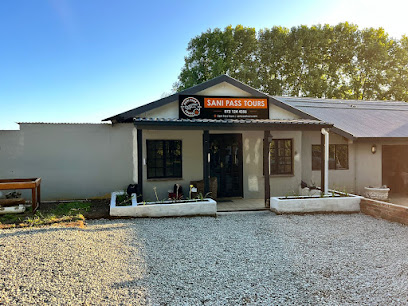
Ackermans Underberg
Discover a variety of stylish clothing for the whole family at Ackermans Underberg, the ideal shopping destination in the heart of Underberg.
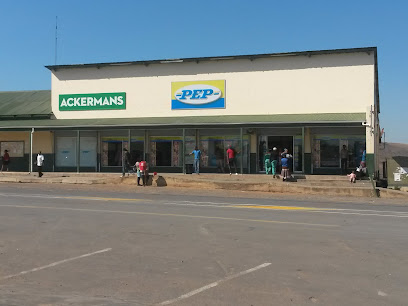
UnderBerg Shop
Explore the charm of UnderBerg Shop, your local convenience store offering essentials and unique local products in a picturesque South African setting.
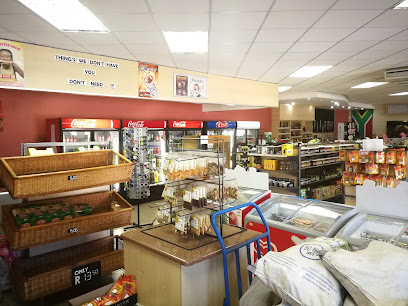
Speckled Hen
Explore the charming Speckled Hen gift shop in Underberg for unique South African decor and handcrafted treasures that make perfect souvenirs.
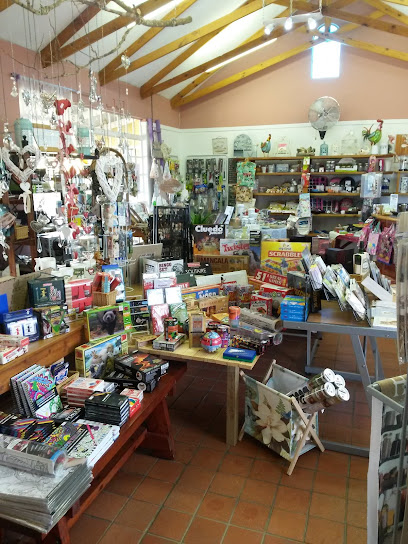
Jumbo Bargain Store
Explore unbeatable deals on electronics and more at Jumbo Bargain Store in Underberg, a shopping paradise for savvy travelers.
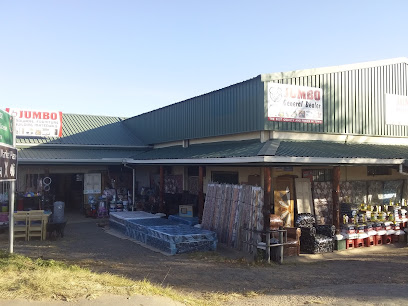
Moden Furniture
Explore Moden Furniture in Underberg for unique, quality pieces that reflect South African design and craftsmanship, making your home truly special.
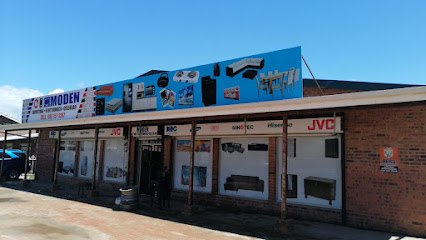
Essential bars & hidden hideouts
The Olde Duck
Discover The Olde Duck, a hidden gem in the Drakensberg, blending exquisite cuisine with stunning natural beauty for an unforgettable dining experience.
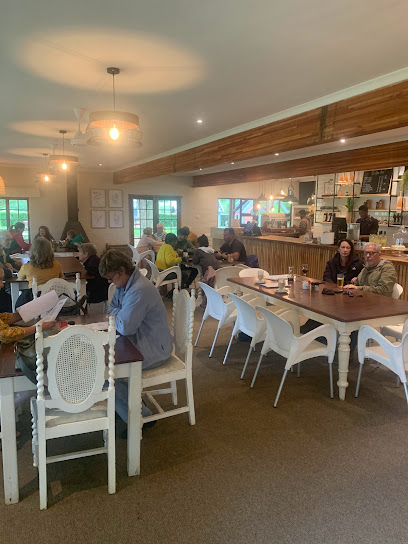
Sani Mountain Lodge
Discover the natural beauty and local charm of Sani Mountain Lodge, your gateway to adventure in the breathtaking landscapes of Lesotho.
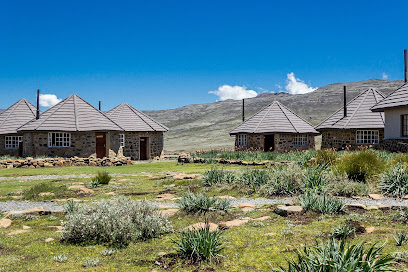
The Old Hatchery & Waterfall Restaurant
Experience exquisite dining and breathtaking views at The Old Hatchery & Waterfall Restaurant in Underberg, a true gem in the heart of the Drakensberg.
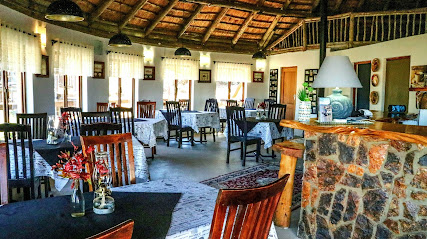
Sani Stone Lodge
Discover the Stunning Sani Stone Lodge, your gateway to adventure and breathtaking landscapes in the Drakensberg Mountains.
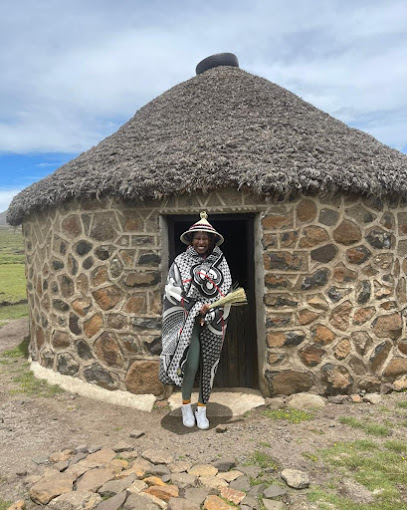
Underberg Inn Pub & Grill
Discover the flavors and warmth of Underberg at the Underberg Inn Pub & Grill, where local cuisine meets a vibrant pub atmosphere.

High Liquor Tavern
Discover the lively heart of Zazulwana at High Liquor Tavern, where local culture and great drinks come together in a vibrant atmosphere.
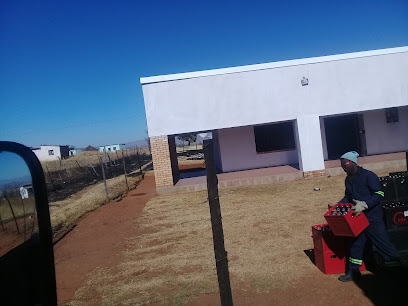
The Overhang Bar
Experience the vibrant nightlife at The Overhang Bar, where locals and tourists come together for great drinks and unforgettable moments.
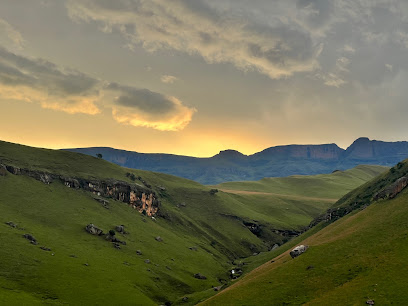
Sphiwo Bar
Discover the lively atmosphere and local culture at Sphiwo Bar in Nkwazela, a perfect spot for drinks and socializing.

New Stance Tavern
Discover the lively ambiance of New Stance Tavern in Maluti NU, where affordable drinks meet local hospitality in a vibrant setting.

Semphete
Experience the vibrant local culture at Semphete, a charming bar in Qachas Nek, Lesotho, perfect for relaxing with drinks and new friends.
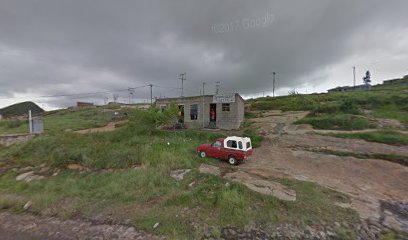
Mamosa bar
Unwind at Mamosa Bar in Qachas Nek, where local drinks and vibrant nightlife meet in an inviting atmosphere.
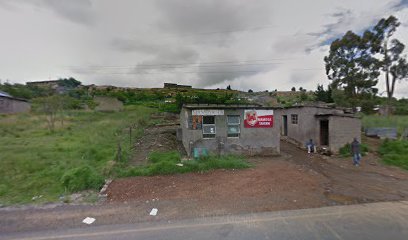
FlatIn Bar
Discover the vibrant FlatIn Bar in Umzimkulu, where great drinks and friendly vibes create the perfect atmosphere for relaxation and socializing.

Makhalong Tavern
Discover the heart of Lesotho's culture at Makhalong Tavern, where locals and tourists unite over traditional drinks and lively conversations.

Chochonia
Experience the warmth of Lesotho at Chochonia, a charming bar in Thaba-Tseka, where local culture meets refreshing drinks.

Local Phrases about Sani Pass
-
- HelloSawubona
[sah-woo-BOH-nah] - GoodbyeHamba kahle
[HAM-bah kah-HLEH] - YesYebo
[YEH-boh] - NoCha
[CHAH] - Please/You're welcomeNgiyacela
[ng-ee-YAH-cheh-lah] - Thank youNgiyabonga
[ng-ee-yah-BOH-ngah] - Excuse me/SorryNgiyaxolisa
[ng-ee-yah-koh-LEE-sah] - How are you?Unjani?
[oo-NYAH-nee] - Fine. And you?Ngiyaphila. Wena?
[ng-ee-yah-PEE-lah. WAY-nah] - Do you speak English?Uyasikhuluma isiNgisi?
[oo-yah-see-khoo-LOO-mah ee-see-NGEE-see] - I don't understandAngazi
[ahn-GAH-zee]
- HelloSawubona
-
- I'd like to see the menu, pleaseNgifuna ukubona imenyu, ngiyacela
[ng-ee-foo-nah oo-koo-BOH-nah ee-men-YOO, ng-ee-yah-CHEH-lah] - I don't eat meatAngiphuzi inyama
[ahn-gee-poo-zee ee-NYAH-mah] - Cheers!Oogy
[OH-ghee] - I would like to pay, pleaseNgifuna ukulinda, ngiyacela
[ng-ee-foo-nah oo-koo-LEE-n-dah, ng-ee-yah-CHEH-lah]
- I'd like to see the menu, pleaseNgifuna ukubona imenyu, ngiyacela
-
- Help!Usizo!
[oo-SEE-zoh] - Go away!Hamba!
[HAM-bah] - Call the Police!Biza amapolisa!
[BEE-zah ah-mah-poh-LEE-sah] - Call a doctor!Biza udokotela!
[BEE-zah oo-doh-koh-TEH-lah] - I'm lostNgiyashona
[ng-ee-yah-SHOH-nah] - I'm illNgiyadina
[ng-ee-yah-DEE-nah]
- Help!Usizo!
-
- I'd like to buy...Ngifuna ukuthenga...
[ng-ee-foo-nah oo-koo-THEHNG-gah] - I'm just lookingNgicabanga kuphela
[ng-ee-cha-BAHNG-gah koo-PHEH-lah] - How much is it?Kuyiqiniso kabi?
[koo-yee-KEE-nee-soo kah-bee] - That's too expensiveLokhu kungakhethekile kakhulu
[LOH-koo koo-nah-kheh-THEH-kee-leh kah-KHOO-loo] - Can you lower the price?Ungakhuluma ikhala?
[oo-ngah-khoo-LOO-mah ee-KHAH-lah]
- I'd like to buy...Ngifuna ukuthenga...
-
- What time is it?Ngubani usuku?
[ngoo-BAH-nee oo-SOO-koo] - It's one o'clockKuyisihlanu
[koo-yee-see-KHLAH-noo] - Half past (10)Kuyintathu
[koo-yin-TAH-too] - MorningEmini
[eh-MEE-nee] - AfternoonNtambama
[n-tahm-BAH-mah] - EveningSesikhona
[seh-see-KHO-nah] - YesterdayIzolo
[ee-ZOH-loh] - TodayNamhlanje
[nahm-LAHN-jeh] - TomorrowKusasa
[koo-SAH-sah] - 1Kunye
[koo-NYEH] - 2Kubili
[koo-BEE-lee] - 3Kuthathu
[koo-TAH-too] - 4Kune
[koo-NEH] - 5Kuhlanu
[koo-KHLAH-noo] - 6Kusithupha
[koo-see-THOO-pah] - 7Kude
[koo-DEH] - 8Kwande
[kwan-DEH] - 9Kwane
[kwa-NEH] - 10Kumi
[koo-MEE]
- What time is it?Ngubani usuku?
-
- Where's a/the...?Kodwa kuphi...?
[koh-DWAH koo-PHEE] - What's the address?Leli indawo ingubani?
[LEH-lee een-DAH-woh in-goo-BAH-nee] - Can you show me (on the map)?Ungangishiyela (emaphini)?
[oo-ngah-ng-ee-SHEE-ye-lah eh-MAH-phee-nee] - When's the next (bus)?Kusasa kuzoba nini (ibhasi)?
[koo-SAH-sah koo-ZOH-bah NEE-nee (ee-BHAH-see)] - A ticket (to ....)Ithikithi (emalini)
[ee-TEE-kee-tee (eh-MAH-lee-nee)]
- Where's a/the...?Kodwa kuphi...?
History of Sani Pass
-
Sani Pass, a rugged mountain road that connects South Africa to Lesotho, has been a vital thoroughfare for centuries. The Basotho people, indigenous to the region, used these trails for trade and communication long before modern infrastructure was developed. Their rich culture and traditions have left an indelible imprint on the area, with oral histories and artifacts testifying to their long-standing presence.
-
In the late 19th century, European explorers and traders began to traverse Sani Pass in their quest to establish trade routes and colonial outposts. The pass offered a challenging yet vital link between the coastal regions of South Africa and the highlands of Lesotho. Early accounts from explorers describe the arduous journey and the breathtaking landscapes they encountered along the way.
-
The modern road through Sani Pass was constructed in the 1950s, creating a more accessible route between South Africa and Lesotho. This engineering feat was undertaken by local workers and overseen by the South African government. The road has since become a symbol of human ingenuity and determination, transforming a once-treacherous path into a gateway for tourists and traders alike.
-
Located at the summit of Sani Pass, the Sani Top Chalet is renowned as the 'highest pub in Africa.' Established in the 1950s, the chalet has served as a rest stop and landmark for travelers braving the pass. Over the years, it has become a cultural icon, offering food, lodging, and breathtaking views that attract visitors from around the globe.
-
Sani Pass is home to a diverse array of plant and animal life, many of which are endemic to the Drakensberg mountain range. The area's unique biodiversity has been a subject of study and admiration for naturalists and biologists. The pass provides critical habitats for various species, contributing to the region's ecological significance.
-
For the local Basotho people, Sani Pass is not just a route but a cultural landmark. Traditional rituals and ceremonies often involve journeys through the pass, symbolizing a connection between the earthly and the spiritual. The pass is also a living museum of Basotho heritage, with traditional crafts, music, and folklore enriching the travel experience.
-
Despite its historical significance and natural beauty, Sani Pass faces modern challenges such as environmental degradation and the pressure of increased tourism. Efforts are being made to balance development with conservation, ensuring that Sani Pass remains a pristine and cherished destination for future generations.
Sani Pass Essentials
-
Sani Pass is located between the border of South Africa and Lesotho. The nearest major city is Durban, approximately 250 kilometers away. To reach Sani Pass, you can fly into King Shaka International Airport in Durban. From Durban, you can rent a car or take a bus to the town of Underberg, which is the gateway to Sani Pass. From Underberg, guided 4x4 tours are available to take you up the pass, as the road is very rugged and requires a 4x4 vehicle.
-
Once in the Underberg area, the best way to explore Sani Pass is via a guided 4x4 tour, as the pass itself is challenging and requires experienced driving. Local tour operators provide both day trips and extended tours into Lesotho. Within the town of Underberg, taxis and rental cars are available. It is advisable to book transportation in advance, especially during peak tourist seasons.
-
The official currency in South Africa is the South African Rand (ZAR). Credit cards are widely accepted in hotels, restaurants, and larger shops in Underberg. However, it is advisable to carry some cash for smaller establishments and tips. ATMs are available in Underberg, but it is wise to withdraw sufficient cash before heading up Sani Pass, as there are no banking facilities on the pass itself or in the remote areas of Lesotho.
-
Sani Pass and the surrounding areas are generally safe for tourists, but standard precautions should be taken. Avoid walking alone at night in Underberg and be cautious with your belongings in crowded areas. The road up Sani Pass is steep and challenging, so it is essential to have an experienced driver or join a guided tour. There are no specific high-crime areas targeting tourists, but it is always best to stay vigilant and aware of your surroundings.
-
In case of emergency, dial 10111 for police assistance and 10177 for medical emergencies in South Africa. In Underberg, there is a local clinic for minor health issues. For more serious medical emergencies, the nearest hospital is in Pietermaritzburg, about 150 kilometers away. It is highly recommended to have travel insurance that covers medical emergencies and evacuation. Make sure your mobile phone is fully charged and you have emergency contacts saved before heading up Sani Pass.
-
Fashion: Do wear comfortable, weather-appropriate clothing and sturdy hiking boots or shoes. Avoid flashy or overly revealing clothing. Religion: Do respect local customs and traditions, especially if visiting any cultural or religious sites in Lesotho. Public Transport: Do use reputable taxi services or book guided tours. Public transport options are limited in rural areas. Greetings: Do greet locals with a friendly 'Hello' or 'Sanibonani' in Zulu. Eating & Drinking: Do try local dishes and accept food graciously. Don’t refuse hospitality, as it is considered impolite.
-
To experience Sani Pass like a local, consider visiting the local markets in Underberg for fresh produce and handmade crafts. Engaging with locals can provide valuable insights into the history and culture of the area. Don't miss a visit to the Sani Mountain Lodge, where you can enjoy a drink at the highest pub in Africa and take in breathtaking views. For a unique experience, consider staying overnight in one of the traditional Basotho villages in Lesotho, where you can learn about local customs and lifestyle.
Trending Landmarks in Sani Pass
-
Maloti-Drakensberg Park
-
Premier Resort Sani Pass
-
Sani Mountain Lodge
-
Sani Lodge Backpackers
-
Khotso Lodge & Horse Trails
-
Kenmo Lake
-
Roof of Africa Tours | Sani Pass & Lesotho Tours
-
Sani Pass Tours - Lesotho Day Trips & Tours
-
Major Adventures - Sani Pass Day Trips
-
Sani Valley Nature Lodges
-
iKhayalamafu Mountain Reserve
-
Sani Pass Border Control (Lesotho)
-
Mkomazana Mountain Cottages
-
Giant's Cup Wilderness Reserve
-
Giant's Castle
Nearby Cities to Sani Pass
-
Things To Do in Thaba-Tseka
-
Things To Do in Butha-Buthe
-
Things To Do in Leribe
-
Things To Do in Teyateyaneng
-
Things To Do in Durban
-
Things To Do in Quthing
-
Things To Do in Maseru
-
Things To Do in Mohale's Hoek
-
Things To Do in Mafeteng
-
Things To Do in Bloemfontein
-
Things To Do in Malkerns
-
Things To Do in Johannesburg
-
Things To Do in Manzini
-
Things To Do in East London
-
Things To Do in Big Bend









